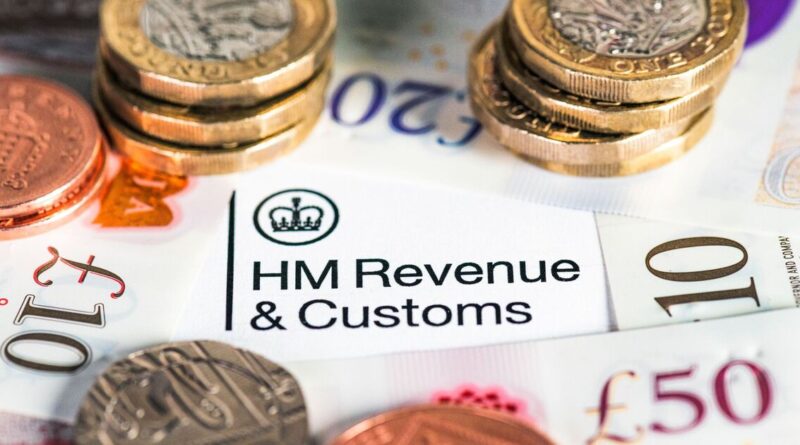Inheritance tax receipts raise £1.5billion in two months amid rumours of U-turn for Reeves | Personal Finance | Finance
Inheritance tax receipts have surged to £1.5 billion in the first two months of the current tax year, according to figures released by HM Revenue and Customs (HMRC) this morning. This marks a £98million increase compared to the same period last year, continuing a two-decade-long upward trend in inheritance tax (IHT) revenues.
The rise comes as speculation mounts over possible policy reversals by Chancellor Rachel Reeves regarding the taxation of non-domiciled individuals’ global assets. The latest figures reinforce predictions that IHT receipts could exceed the £8.2billion collected in the previous tax year. The steady rise in receipts has been attributed to factors such as rising property values, frozen thresholds, and proposed changes to inheritance tax rules, which are expected to draw more estates into the tax net. Nicholas Hyett, investment manager at Wealth Club, said: “If recent rumours are to be believed, the Chancellor is considering a U-turn on the decision to subject non-doms’ global assets to inheritance tax.
“This was a decision that was originally expected to earn HMRC an additional £430 million a year. However, the potential U-turn is no doubt down to the exodus of wealthy non-doms over the last six months or so. Not only does that mean the tax will raise less than hoped, but the UK also loses all the other benefits these wealthy residents bring, including spending, investment and philanthropy.”
He added: “It shouldn’t come as a surprise to the Government. Changes to inheritance tax were always going to be the bit that was both least popular and easiest to escape. City high earners need to be in the UK for their salaries, but the mega-wealthy can be anywhere in the world. The UK has a lot of appeal, but not enough to give up 40% of your family’s wealth. It’s a shame the Government will only listen once the numbers start to do the talking.”
Under current UK inheritance tax rules, estates valued above £325,000 are typically taxed at 40%. This is referred to as the “nil-rate” threshold, and it has been frozen since 2009 despite soaring house prices and inflation.
Mr Hyett continued: “Comments from non-dom advisers suggest 30% or more of their clients are considering ditching the UK for somewhere with a more favourable tax regime, and many have already done so. The problem with the planned U-turn is that the horse has already bolted—plans are made, and the risk of future changes from a government which appears be hostile to the global wealthy is too high.”
During her first Autumn Budget last November, Ms Reeves announced an extension to the freeze on IHT thresholds for a further two years until 2030.
Plans to reform Agricultural Relief and Business Property Relief were also announced, with changes set to take effect from April 2026. The first £1million of qualifying combined assets will be exempt from inheritance tax. For assets exceeding £1million, a 50% relief will apply, resulting in an effective tax rate of 20%.
Previously, assets that qualified for this relief were fully exempt from inheritance tax.
Thirdly, qualifying AIM shares will no longer be fully exempt from inheritance tax. Starting in 2026, they will be subject to a 20% inheritance tax rate if held for at least two years.
Finally, from April 6, 2027, inherited pensions may become subject to both inheritance tax and income tax for the recipient. Pending consultation, this could result in an effective tax rate of up to 67%.
The Office for Budget Responsibility (OBR) estimates suggest that nearly 10% of estates could be subject to IHT by 2030 if current trends persist.
Mr Hyett said: “Most recently, it has emerged that the Deputy Prime Minister has been pushing for IHT relief on AIM to be abolished altogether—just months after the change to 50% relief was announced. This is terrible news for AIM. The new 50% IHT relief is back in question, investments will dry up as a result, and it will be even harder for small UK companies to raise money.
“The Government’s raids on historically IHT-free investments and assets—like pensions, private company shares and AIM shares—create exactly the kind of uncertainty that puts people off making investments.”
Paul Barham, partner at Forvis Mazars, added: “While the Chancellor may soften the rules around IHT for non-doms, we also need to consider that pensions will be considered part of estates from 2027, tightening the screw even further for the ordinary Britons.
“Mitigating the tax is possible, but considered planning is required for this, especially given the rumours of further tweaks to IHT in the Autumn. Making use of allowances while you are able to is essential, as is knowing the rules around gifting.”





